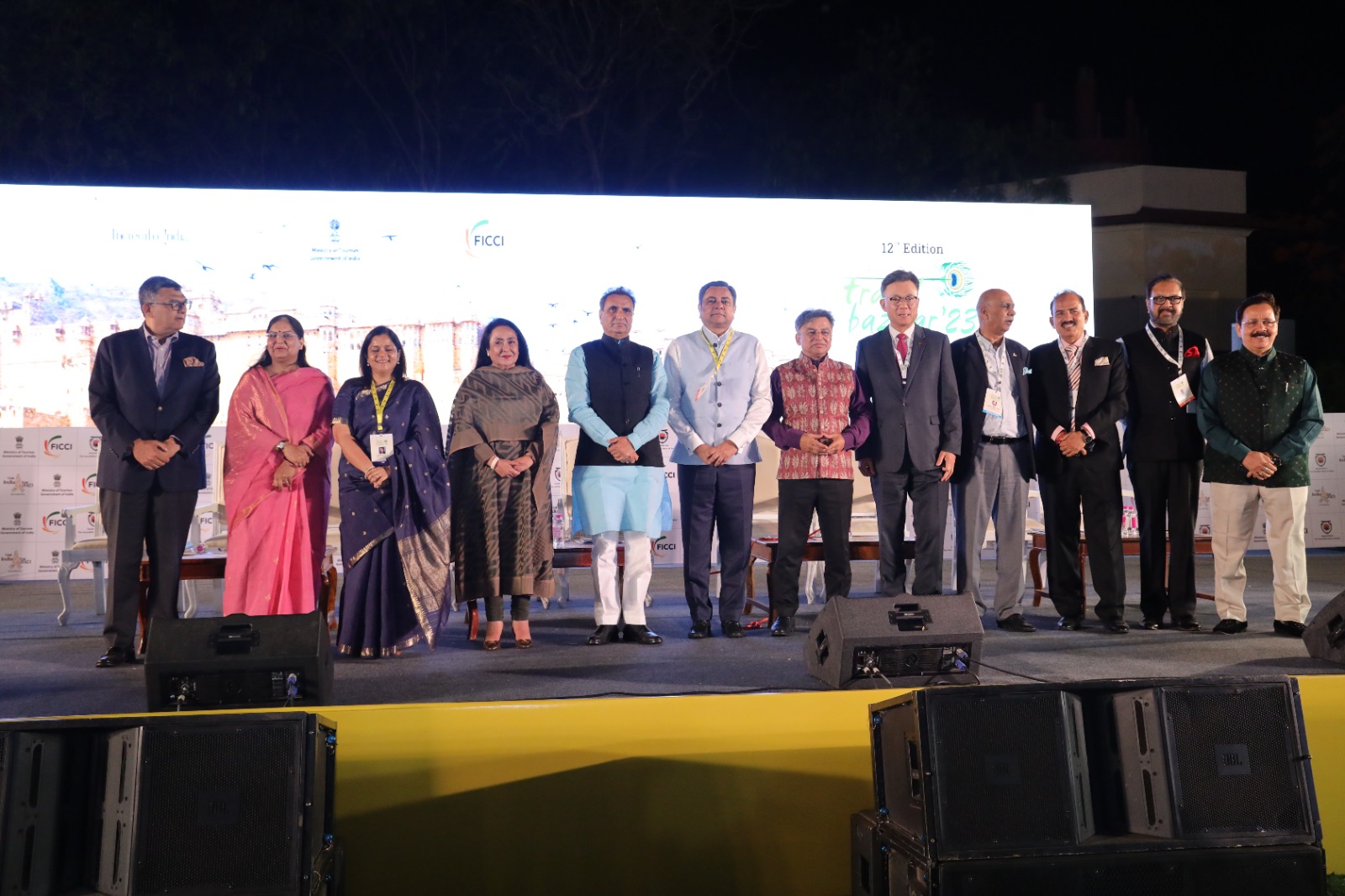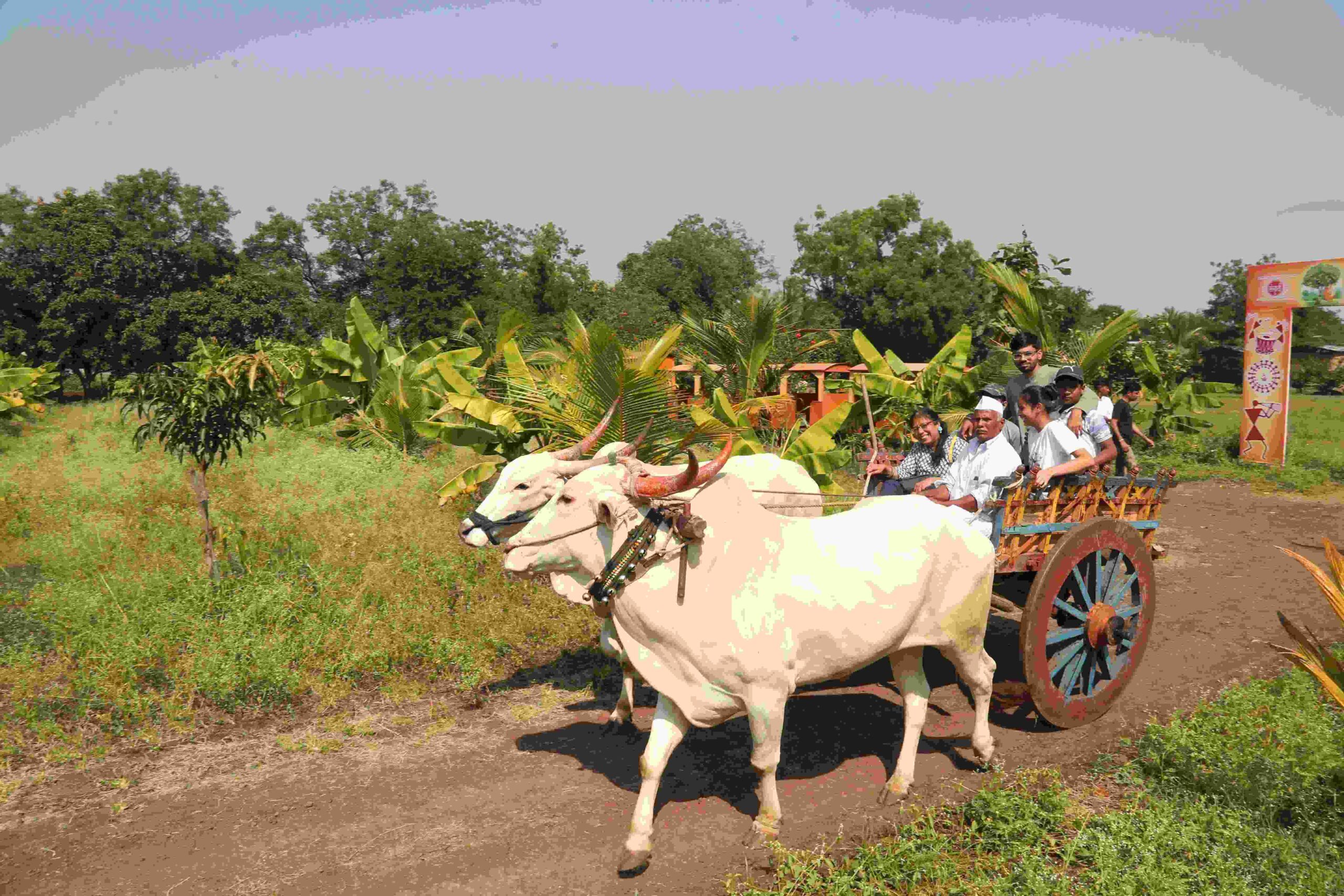To delve deeper into the dynamics of India’s travel & tourism sector, KPMG in India, in collaboration with PHD Chambers of Commerce & Industry, Hotel Association of India, and FH&RA of India, released a report titled “Sustainability in Tourism: Reimagining India’s Sustainable Tourism Evolution.”
This comprehensive study offers an analysis of the pandemic’s impact on the tourism sector, its recovery trajectory, and the strategic imperative of embracing sustainable tourism as a linchpin for future development.
Moreover, the report provides recommendations for promoting sustainable tourism in India, encompassing community-level interventions, development of tax strategies for sustainability, leveraging supply chains, and mainstreaming sustainability practices within the tourism sector. These recommendations aim to mitigate challenges and capitalize on opportunities for sustainable growth.
Sharing his views Aalap Bansal, Partner, Industrial & Infrastructure Development Advisory (IIDA) KPMG in India, said, “In today’s tourism industry, sustainability isn’t just a trend—it’s a must-have. As we face increasing pressure to reduce our environmental footprint and uplift local communities, integrating sustainable practices into our daily operations is essential. This shift isn’t merely about compliance; it’s about safeguarding the future of our industry and the places we visit. India has the chance to lead by example in tourism by embracing these principles wholeheartedly, showing the world its dedication to a sustainable and thriving future.”
Here are some key highlights from the report :
• Within the Asia Pacific region, India has positioned itself as one of the driving forces for sustainable tourism. The sustainable tourism market in India was valued at USD 26.01 million in 2022 and is projected to reach USD 151.88 million by 2032, with a rapid CAGR of 19.3% from 2022 to 2032 (India Sustainable Tourism Market Size, Share & Trends – 2032, Future Market Insights, July 2022)
• In the Interim Budget for 2024, the tourism sector received an allocation of INR 2,449.62 million, marking a positive change from the Union Budget of 2023, which was INR 2,400 million
• The integration of sustainable tourism principles across all forms of tourism and destinations is deemed essential for making the sector more responsible and resilient
• Virtual tourism, once a novelty, now serves as a temporary solution, providing immersive experiences of India’s heritage sites and natural wonders
• One of its key segments, the eco-tourism sector in India, is expected to grow at 15.7% between 2019 and 2027, reaching USD 4.55 billion (Tourism Industry in India – FDI, Investment, Market Share” Invest India, February 2023)
• Extensive tourist activities in ecologically sensitive regions have been associated with negative impacts, primarily borne by the host communities. This underscores the global need to develop a nurturing ecosystem for sustainable tourism
• With the country’s vast natural and cultural wealth at stake, the transition towards sustainability is not just a strategic economic decision but also enables India to cultivate a tourism landscape with long-term viability and integrity of its assets
• While the public sector in India has undertaken various initiatives for the development of sustainable tourism, the private sector, including startups, is innovating to promote sustainable tourism efficiently. These initiatives include environmental conservation and rural living, engagement with local communities, birdlife and wildlife excursions, ecotourism to create sustainable livelihoods, and trekking for sustainability
Challenges and opportunities ahead
• Managing over-tourism: With the resurgence of over-tourism post the pandemic, the government and other stakeholders are developing solutions that address negative impacts of tourism and transform it into something more sustainable
• Tourist behaviour and sustainable tourism: While the government and tourism service providers progress toward sustainability, it’s crucial for tourists and travelers, as the primary drivers of tourism, to adapt their attitudes and behaviors for a sustainable future
• Mitigation of wastage: Food wastage, particularly in the tourism and hospitality sector, contributes significantly to environmentally harmful emissions. Urgent action is needed to tackle this issue. While some entities are innovating with methods like repurposing leftovers and installing biodigesters, there’s also room for initiatives such as rethinking kitchen management, staff training, and prioritisloing local, seasonal ingredients
• Shortage of workforce: Sustainable tourism hinges on a skilled workforce. Pandemic-driven staff shortages have strained the industry, impacting service quality and costs. Urgent training and empowerment of locals in hospitality and service skills are crucial for effective sustainable tourism strategies
Future of sustainable tourism in India
• Rise in eco-conscious travelers: Expect a surge in travelers prioritizing sustainable experiences, drawn by India’s diverse natural beauty and biodiversity
• Advancements in sustainable infrastructure: India is positioned to lead with eco-friendly accommodations like solar-powered hotels and zero-waste guesthouses, supported by government policies
• Focus on rural and community-based tourism: Anticipate a shift towards authentic experiences benefiting local economies, featuring farm stays, craft workshops, and cultural immersion programs
• Emphasis on experiential travel: Real, culturally immersive experiences will be sought after, supported by sustainable tourism practices and digital innovation
• Emphasis on digital innovation: From apps that recommend eco-friendly travel options to platforms that enable travelers to offset their carbon footprint, technology will make it easier for tourists to make responsible choices
• Expansion of green certifications and standards: Establishments that meet these standards will be favored by travelers, driving competition and innovation in sustainable practices.
• Sustainable transport networks: . Electric vehicles, solar-powered boats, and bicycles will become popular modes of transport for tourists, supported by infrastructure such as charging stations and bike rental schemes.
Recommendations for promoting sustainable tourism
• Implement community-level interventions: Develop tools and strategies at the grassroots level to guide the evolution and development of tourism in regional landscapes, ensuring effective implementation of sustainable tourism practices
• Introduce environmental taxes: To support environmental and cultural preservation efforts, introduce sustainability and environmental taxes to generate revenue for conservation programs and facilitate the transition towards eco-friendly practices
• Promote farm tourism: Encourage local communities to explore supplementary income sources through agriculture-based tourism initiatives, such as farm stays and tours, fostering connections between visitors and the authentic experiences offered by rural landscapes
• Strengthen local supply chains: Minimize economic leakage and support community economies by prioritizing locally sourced products and collaborating with local enterprises to offer authentic local cuisines and cultural experiences
• Foster hubs, networks, and clusters: Establish collaborative platforms to provide mutual support, capacity building, and access to resources for sustainable tourism initiatives, encouraging cooperation and knowledge sharing among stakeholders
• Enhance marketing and promotion: Lead marketing efforts to effectively showcase India’s diverse ecological and cultural assets, organizing events and digital campaigns to attract visitors and highlight the country’s unique tourism offerings
• Invest in knowledge management and capacity building: Provide support and resources for capacity building in sustainable tourism practices at the local level, empowering stakeholders with the skills and knowledge needed to implement sustainable initiatives effectively
• Provide destination-level support: Offer practical assistance, such as infrastructure development and business support programs, to create an enabling environment for the successful implementation of sustainable tourism strategies at the destination level.
• Mainstream sustainability: Integrate sustainable practices into daily operations across energy conservation, waste reduction, eco-friendly transportation, responsible tourism experiences, community engagement, and company culture, ensuring that sustainability becomes an integral part of the tourism industry’s ethos and practices






